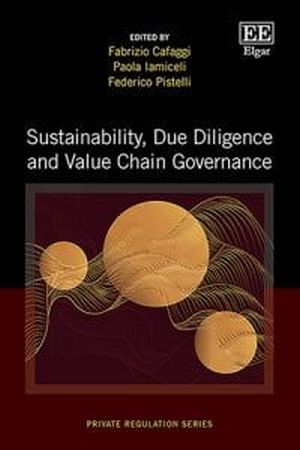
In light of the most recent EU legislative initiatives in the field and the innovative case law in Europe and North America, this timely book explores the impact of the shift from voluntary to mandatory due diligence and the sustainability challenges on global value chains. It examines how businesses, regulators, and stakeholders navigate this transition to align economic growth and liability regimes in supply chains with environmental and human rights protections.
Expert authors analyze the role of industry leaders in managing supply chain sustainability, the new EU Corporate Sustainability Due Diligence Directive, its subsequent amendments in the Omnibus I package, and the integration of public and private governance tools. The regulatory multilevel system that includes international and national regulation poses daunting challenges to governance and regulation of global chains. The book addresses the legal and contractual frameworks required to enforce these obligations along supply chains based on extraterritorial administrative and judicial enforcement and stakeholder participation. Contributors underline the necessity for stronger accountability mechanisms and innovative contractual approaches to ensure compliance and sustainable development, emphasizing the need for shared responsibility along supply chains. Ultimately, they highlight how new global governance tools can enable equitable and effective action in protecting environmental and social values.
Integrating legal analysis with insights from supply chain management and institutional economics, this book is a crucial read for scholars and students of private, commercial, comparative, and international law. With its in-depth analysis of legal frameworks, it also provides actionable insights for businesses, policymakers, and legal experts.